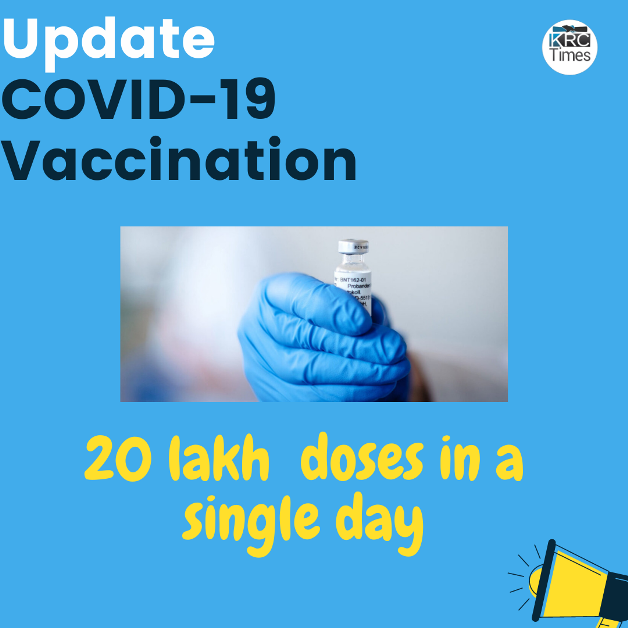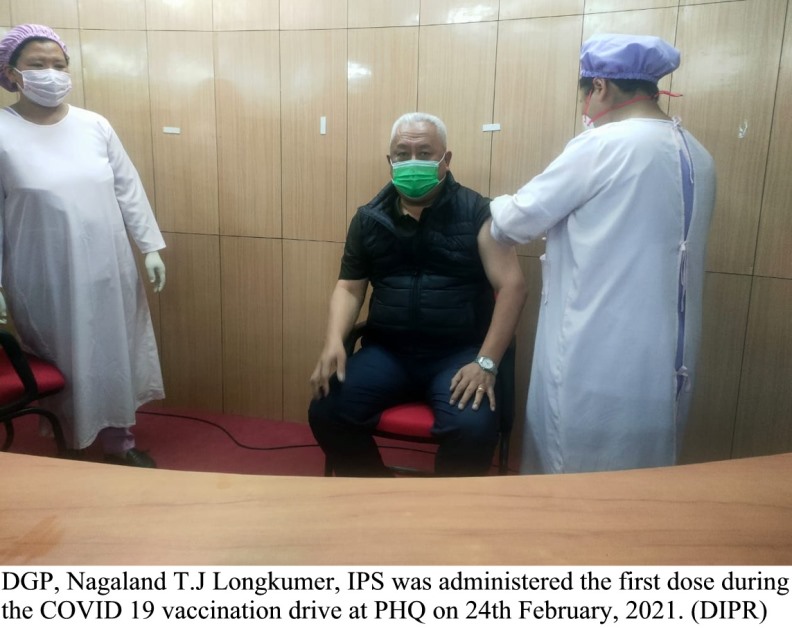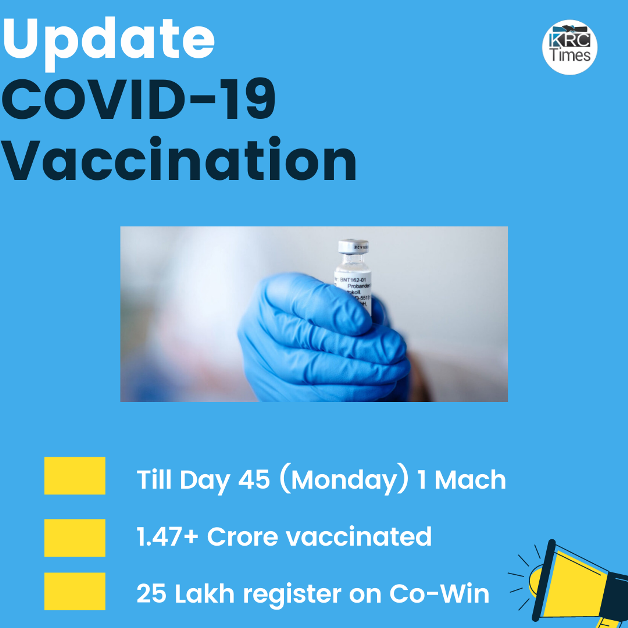Total vaccination nearing 2.5 cr doses– powered by the fastest recent growth in vaccination rate globally
 KRC TIMES Desk
KRC TIMES Desk

Dr P K Misra, Principal Secretary to Prime Minister chaired a high level review meeting by video conference on Tuesday, to review the status and progress of COVID vaccination across States and UTs. The meeting was attended by Chief Secretaries and the officers involved in the vaccination effort in the States/UTs, Secretaries to the Government of India from Ministries/ Department of Health, Pharmaceuticals, Biotechnology, Health Research, Member (Health), NITI Aayog and CEO (NHA) were also present during the high level review meeting.
Health Secretary apprised the meeting on India achieving the landmark of administering more than 20 lakh doses in a single day. The country is approaching 2.5 crores total vaccination coverage, powered by the fastest recent growth in vaccination globally.
Principal Secretary to PM commended all officials across the Central and State governments, for their critical role in the now successful rollout of the world’s largest vaccination drive. He also reinforced the need to continue this momentum in a sustained manner.
Cabinet Secretary Rajiv Gauba advised the States to ramp up the speed of vaccination, to cover as many eligible people as possible, in as short a duration as possible; especially given the large population to be covered. States were asked to prepare a detailed roadmap for the next three months for achieving the same.
Chief Secretaries/ Senior officials of the States and UTs briefed about the progress of vaccination in their respective jurisdictions, giving valuable feedback and suggestions.
The following aspects were reviewed in comprehensive detail during the meeting:
- Expanding Capacity–On-boarding and operationalising as many health facilities as possible as vaccination centres, across the public and private sectors.
- Widening Access – Ensuring equitable and easy access to all, throughout the nation, across states, Districts, Towns and Villages, especially identifying existing geographical dark-zones through geospatial analysis.
- Maximising Efficiency– Keeping as many vaccination centres operational daily as possible, enhancing Capacity Utilization in these centres, and minimizing Wastage in the same.
- Enabling smooth and safe Service Delivery – Ensuring convenient registration for citizens, by maximizing available slots on Co-WIN with all vaccination centres publishing sessions for up to 4 weeks ahead. Also optimizing centre-level planning with appropriate provisions made for crowd management, drinking water and other conveniences for citizens. And ensuring real-time authentication and certification as much as possible for the convenience of the citizen as well as a check against misuse.
- Encouraging Registration – for vaccination over ‘Walk-in’ mode, to facilitate the entire process by making it more convenient for the citizen, as well as giving authorities a forward view of expected demand to plan accordingly and avoid over-crowding.
- Managing Supply – Optimising the supply chain down to the vaccination centre through efficient and equitable distribution while preventing any stock-piling or hoarding, with the assurance of there being no shortage of vaccine doses in the future.
- Monitoring closely – Reviewing progress in the vaccination drive on a real-time, disaggregated basis down to the district and block level, leveraging the end-to-end data integration of the Co-WIN platform, for continuous and customized management.
State-wise data and analysis on all the above parameters were discussed in detail, and all encouraged to share and learn from each other’s experiences and best practices.
It was reiterated that there is no shortage of vaccine doses in any State and UT. All States were advised to register and activate all private facilities and also provide sufficient stock of vaccines to the private facilities for 15-28 days so that these facilities can offer online open slots to citizens. Visibility of more open slots not only assures the citizens about the services but also helps avoid overcrowding on account of perceived scarcity in absence of clear visibility of vaccination slots.
States and UTs were particularly urged to leverage the private sector to the maximum to enhance coverage, taking advantage of the liberal enabling guidelines issued by the Centre; registering and activating as many private facilities as possible, providing sufficient stock of vaccines necessary for these centres to work at their optimum and providing any other facilitation required.
Principal Secretary to PM concluded by asking all the senior officials to work through a scientific, evidence-based, micro-planned, area-specific approach to ensure convenient and safe vaccination for all, in a rapid yet sustained manner.





